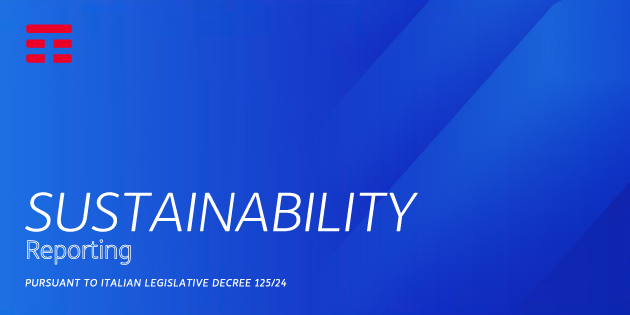Boosting the skills of the country’s human capital thanks to new digital divulgence initiatives – in collaboration with institutions and businesses – which are aimed at everyone: citizens, schools, businesses and government bodies. In line with this objective, the country is continuing its digital recovery thanks to ‘Operazione Risorgimento Digitale’, with renewed formats: platforms, free webinars and certified learning levels to ensure maximum spread of know-how for the use of digital tools nationwide.
The new aspects of the project will be set out today during the streaming event ‘Operazione Risorgimento Digitale, the skills of the future, today’. The event will encourage an exchange between the key players of innovation, institutions, companies, experts and other stakeholders. Moderated by Riccardo Luna, it will be attended, amongst others, by Salvatore Rossi and Luigi Gubitosi, respectively TIM’s Chairman and CEO. Paola Pisano, Minister for Technological Innovation and Digitisation, and Antonio Parenti, Head of the European Commission Representation in Italy, will also attend. Also partaking in the event are the CEOs of the partner companies of ‘Operazione Risorgimento Digitale’ and representatives of the Consumer Associations supporting the project, who will be ‘Italian maestros’ for a day with a 100-second lecture on the keywords and main subjects of the digital society: from apps to artificial intelligence, 5G through to cyber-security and the cloud.
Report on Italy’s Digital Transformation
During the event, the ‘Report on Italy’s digital transformation’ drawn up by Censis in collaboration with the TIM Study Centre will be presented, according to which the higher level of digitisation of Italians and greater use of digital services during the lockdown would push Italy up six places from its current ranking of 25th in the Digital Economy and Society Index 2020 - DESI (data June 2019).
The study makes a detailed analysis of Italy’s digitisation and indications of change in the use of digital services with the outbreak of the pandemic. While Italy was still lagging behind in the pre-Covid European rankings, especially in relation to human capital tied to the spread of digital skills, things are beginning to change thanks to a greater awareness of the opportunities offered by digital tools.
During the health emergency Italy made a significant leap forwards in its demand for digital, which used to be largely unexpressed but then became strong especially in the areas of real-time communication. 75% of the adult population has regularly used the Internet and, most importantly, the majority of Italians have now become aware that digital solutions and online services are a key tool in many areas of daily life.
Overall, it can be estimated that almost 43 million people over the age of 18 (including at least 3 million new users) have stayed in touch with their friends and relatives using online video calling systems. The majority of Italians (61%) believe that they will continue to use this means of communication in the near future, given that the full immersion in digital technology prompted by the health emergency and restrictions on travelling meant a widespread realisation of it being possible to live differently from usual. The analysis also shows that 8.7 million Italians have used the digital services of government bodies for the first time, and 83.5% of those interviewed say they prefer services which are provided to citizens both online and physically.
Traffic for video communication services increased about 8-fold thanks also to these new digital behaviours. Almost 9 out of 10 Italians, during the lockdown, have been able to continue their activities remotely using the fixed Internet connection already available to them. More than half also went online using mobile devices.
With this in mind, ‘Operazione Risorgimento Digitale’ aims to make a contribution to the economic and social recovery of Italy using digital skills, boosting human capital through new training activities geared not only towards the digital inclusion of those who have never used technology, but also towards enhancing the digital skills of those who intend to use technology more for everyday life, work and fast access to public services.
New training paths
The Internet school for all, dedicated to citizens: the town squares of Italy go digital. TIM is redoubling its commitment to spread online skills with the first 50 classes of the Internet school which is open to all citizens. This is an extensive training programme dedicated to people of all ages with free lessons on the main topics of the digital revolution: Cybersecurity, home banking, e-commerce, use of electronic medical records, Spid and PagoPA are some of the subjects covered in the centre’s first lessons.
Another training course ‘Digital consumers, conscious and safe’ was launched in collaboration with the Adiconsum, Adoc, Altroconsumo, Cittadinanzattiva, Codacons, Federconsumatori and U.Di.Con. associations, with webinars and free content aimed at citizens and consumers.
There is a special focus also on digital training for migrants, through the Mygrants App – the first app to provide direct support to immigrants to make them aware of the regulations in Italy and Europe, along with useful training courses for the Italian labour market. The App also provides a course on the digital skills which until now have been used by over 20 thousand migrants. The initiative is managed and coordinated in collaboration with Italiacamp.
Nuovi Docenti Digitali is the WeSchool course to help secondary school teachers to adopt integrated teaching with the schools open. The course is divided into several modules that teachers can either follow as is, or they can create their own personalised learning path.
Topics include an introduction to integrated teaching, educational planning, live distance learning, flipped classrooms, cooperative learning, debates, evaluation and inclusion.
Businesses can take advantage of the course certified by university professors to expedite the acquisition of digital skills by workers, based on the DigiComp 2.1 framework (a benchmark for digital skills initiatives at European level) which covers five different macro-areas split into 21 skills. The Master Classes for businesses are also continuing with a new catalogue aimed at SMEs and entrepreneurs on the topics of Digital Transformation, Web and Marketing, Big Data, IoT, AI and the Cloud.
Lastly, to support the digital transformation process of government bodies, an e-learning course will be available in 4 modules dedicated to public officials, with content also available to the admin staff of schools and local health authorities. The topics addressed are: digital transformation, how public offices are changing; going paperless; how to guarantee digital rights; and the challenges of the future.
With this renewed structure, ‘Operazione Risorgimento Digitale’ – the great partnership of institutions, companies and the voluntary sector launched by TIM last year – confirms the commitment to support Italy and break down the cultural digital divide by promoting knowledge and the use of new technology by more and more citizens, companies and government bodies, in a key moment in history amid extensive transformation which requires a greater capacity to update and fully grasp all of the opportunities that digitisation has to offer in the post-Covid period.
The ‘Report on Italy’s digital transformation’ drawn up by Censis in collaboration with the TIM Study Centre is available at the following link https://www.gruppotim.it/it/gruppo/chi-siamo/news/rapporto-trasformazione-digitale-Italia.html
***
Operazione Risorgimento Digitale
The project is in collaboration with the European Commission and endorses the Manifesto for the Digital Republic promoted by the Ministry for Innovation. As part of the project important memorandums of understanding have been signed with the Ministries for Public Administration, Education and Justice. The initiative also collaborates with the State Police, is sponsored by ANCI, the Federation of Confindustria Digitale, and is partnered with CENSIS, Treccani, Fondazione Mondo Digitale, WeSchool, ItaliaCamp, JA Italia, Gruppo Maggioli, Telefono Azzurro. The project promoted by TIM has been joined by excellent partners such as Accenture, Adobe, Artur D. Little, BCG (Boston Consulting Group), Cisco, Dell, Engineering, Ericsson, Generation (Mckinsey), Google, Hewlett Packard Enterprise, Huawei, Lenovo, Manpower, Nokia, NTT DATA, Oppo, PWC (PricewaterhouseCoopers), Qualcomm, Reply, Samsung, SAP, SWG, Xiaomi, ZTE, as well as INWIT and Olivetti. The initiative has gained the support of trade associations, the voluntary sector and key stakeholders in the field of social innovation.
Rome, 1 December 2020



